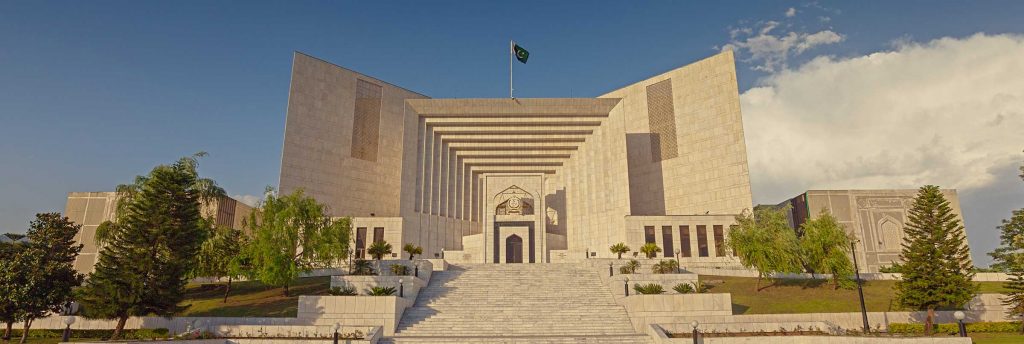The case was considered by a larger bench consisting of six judges, including Justice Muhammad Ali Mazhar, Justice Hassan Azhar Rizvi, Justice Shahid Waheed, Justice Musarat Hilali, and Justice Irfan Saadat Khan. The bench was led by Justice Aminuddin Khan.
According to the highest court, decisions in May 9 violence cases where the accused could be freed before Eid should be made public.
Mansoor Usman Awan, the Attorney General of Pakistan (AGP), then gave the court the assurance that individuals with lighter sentences will receive legal breaks.
The ruling from the supreme court on October 23 opposing the trial of civilians in military courts was brought before the court.
The Supreme Court (SC) rendered a 4-1 decision on October 23 in response to arguments made against the holding of civilian trials in military courts. PTI chief Imran Khan’s detention in the Al-Qadir Trust case, along with the arrest of other PTI leaders, led to rioting on May 9. The PTI chairman and others filed a motion with the top court to overturn the military trial of civilians accused of being involved in those events.
The accused wanted a trial in military courts, therefore the petitioners begged the higher court to overturn its judgment until the review plea decision.
In its plea to the court, the government stated in a report to the SC that 102 people had been arrested following occurrences on May 9 and 10.
In connection with the attacks on military installations, including GHQ Rawalpindi, Corps Commander House Lahore, PAF Base Mianwali, ISI Establishment Civil Lines Faisalabad, Sialkot Cantonment, Hamza Camp, Gujranwala Cantonment, and Bannu Cantonment, 102 people were detained, according to the application.
According to the Official Secrets Act of 1923 and the Pakistan Army Act of 1952, the accused have been placed under detention.

